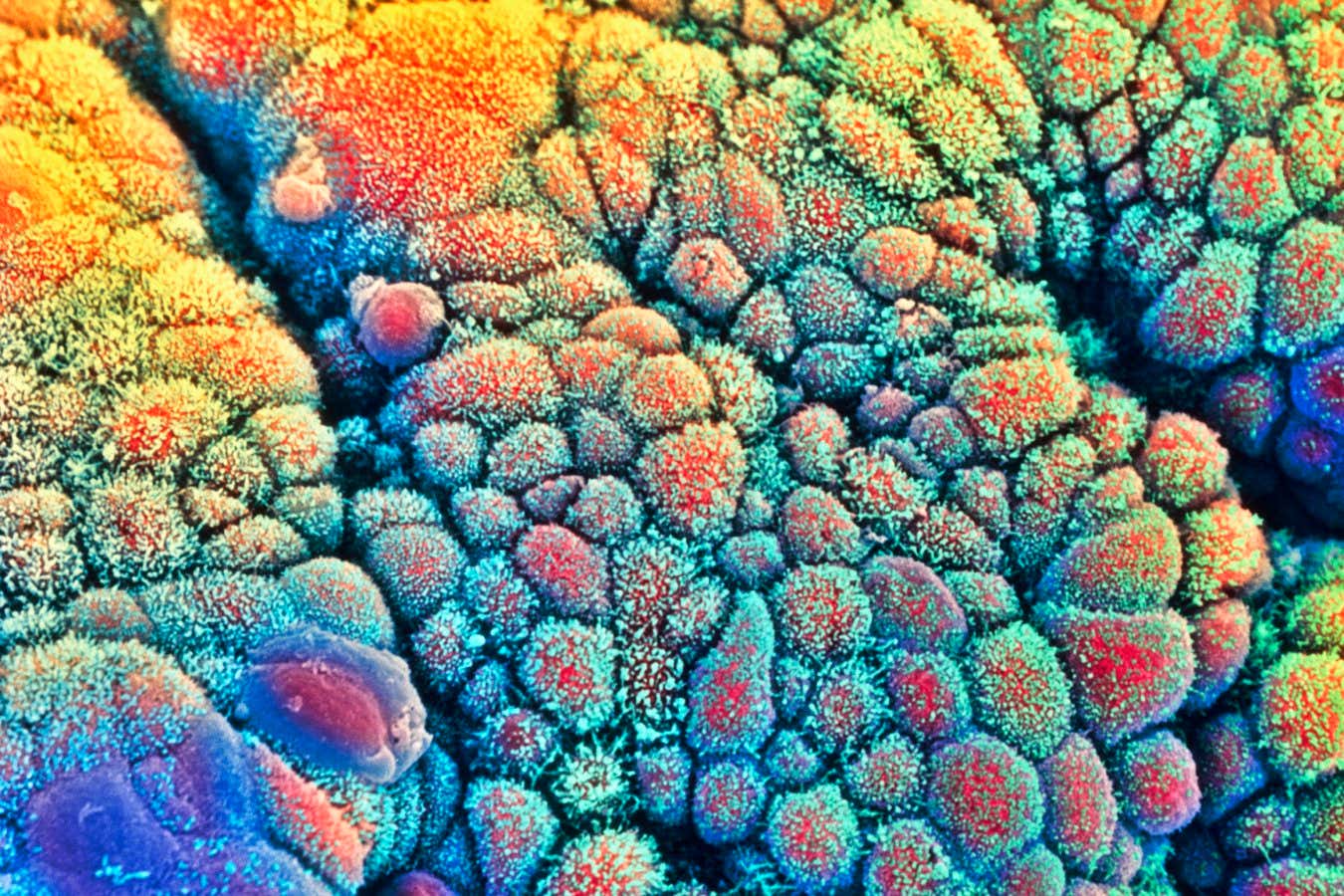The number of people under 50 with cancer is increasing in many countries and for many different tumour types. Why this is occurring isn’t entirely clear, but it may be due to some aspects of modern life
By Clare Wilson
29 March 2023
A scanning electron micrograph of cancer cells in the intestine
STEVE GSCHMEISSNER/SCIENCE PHOTO LIBRARY
When it comes to cancer research, we regularly hear good news about the number of people benefiting from advances in treatment. But there is one bad news story about the condition that gets little attention. For three decades, there has been a gradual rise in the number of people under 50 being diagnosed with cancer – and we don’t entirely know why.
The rise is steepest in bowel cancer, but an increase in incidences is happening with tumours of nearly all the major organs of the body. It is so alarming that it was made a top priority for research in a joint UK-US cancer funding review earlier this month. So, what might the causes be?
The incidence of cancer rises with age, mainly because the cells of older people have had longer to acquire the genetic mutations that cause tumours.
Advertisement
Around 9 in 10 cancerous tumours occur in people over 50, so the increasing incidence in people younger than this isn’t making a big impact on the total number of cases. “It’s important to remember that the vast majority of cancer cases are diagnosed in people over 50,” says Alice Davies at Cancer Research UK (CRUK).
Yet the trend is worrying, partly because it shows no signs of stopping. Young people should be in the prime of their lives and are often caring for children, says Marios Giannakis at the Dana-Farber Cancer Institute in Boston, Massachusetts.
“It’s an absolutely devastating day when you see young patients diagnosed with cancer,” he says. Giannakis called for an investigation into the reasons behind the rise in bowel cancer specifically in an opinion article in the journal Science on 16 March.
